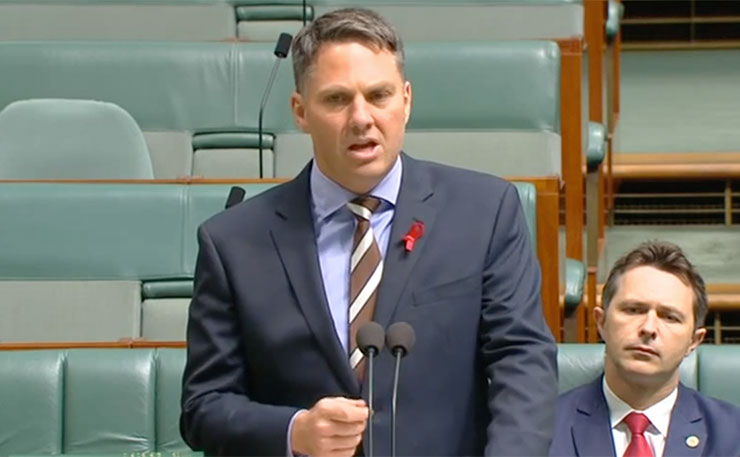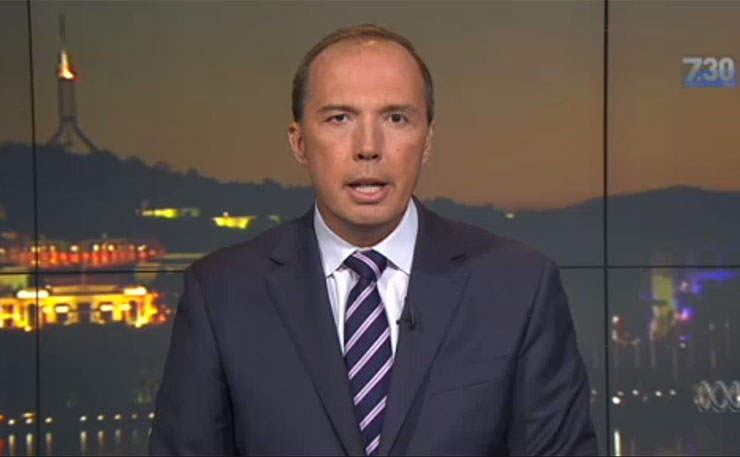Fresh efforts by the Coalition to dilute human rights protections in Australia’s migration laws will be opposed by Labor. Max Chalmers reports.
Labor today vowed to oppose new migration laws which the United Nations has warned would ‘significantly increase’ the likelihood of Australia sending asylum seekers back to countries where a “gross, flagrant or mass violation of human rights” is occurring.
Speaking in parliament Shadow Immigration Minister Richard Marles confirmed his party would attempt to block changes designed to weaken Australia’s so called complementary protection measures, which act as a kind of safety net, stopping governments from sending people back to harm even if they do not meet the strict legal requirements to be considered a refugee. Australia’s current legislation specifies a person can not be removed to countries where there is a real risk of arbitrary deprivation of life, the death penalty, torture, cruel or inhuman treatment or punishment, or degrading treatment or punishment.

Marles made the commitment while speaking on a Bill introduced by the Coalition late last year, initiating a renewed push by the government to strip back human rights protections embedded in Australian law. A similar Bill, also opposed by Labor, died off in parliament in 2015.
The most recent effort has been criticised by the Office of the United Nations High Commissioner for Refugees (UNHCR), which expressed “serious concerns” in a submission made to an ongoing parliamentary inquiry examining the laws.
Chief among the issues raised by such human rights voices are proposed changes that would allow asylum seekers to be sent back to a country they have fled if parts of it remain safe, regardless of whether movement to such places can reasonably be made.
Changes would also allow Australia to send a person back to a situation in which an entire population is facing significant harm but it can not be shown the individual in question faces a particular risk, or in which the individual could take reasonable steps to modify their behaviour in a way that helps them avoid persecution.
“UNHCR’s view is that a person’s risk of being persecuted or subjected to significant harm must be assessed in the context of the overall situation in the country of origin, taking into account general as well as individual circumstances,” the UNHCR submission said.
“To adopt a different approach, as proposed by these amendments, significantly increases the likelihood that an applicant will be subjected [to]‘gross, flagrant or mass violation of human rights’ upon his/her return, which greatly undermines the complementary protection framework in the Migration Act.”
Despite exemptions – including that people need not hide religious beliefs, ethnicity, disability, or sexual orientation – the Australian Human Rights Commission recommended the behaviour modification changes be scrapped.
Speaking on the Bill at the time of its introduction to parliament, Immigration Minister Peter Dutton said its purpose was to overcome “inconsistencies” between Australia’s migration law and complementary protection obligations.
Referring to the changes to generalised and personal risk Dutton said: “…this amendment clarifies that, while the existence of a consistent pattern of gross, flagrant or mass violation of human rights in the relevant country is a relevant consideration, such circumstances of themselves will not meet the necessary threshold of constituting a ‘real risk’ of ‘significant harm’ for the purposes of complementary protection.”
With Labor set against the new laws their passage through the senate will rely on significant crossbench support.
Marles said the Bill was of “great concern” to his party and that the Coalition’s previous removal of references to the Refugee Convention from Australian migration law had been an act of “false nationalism”.
A parliamentary inquiry examining the Bill is set to hold a hearing on Friday.
Donate To New Matilda
New Matilda is a small, independent media outlet. We survive through reader contributions, and never losing a lawsuit. If you got something from this article, giving something back helps us to continue speaking truth to power. Every little bit counts.





